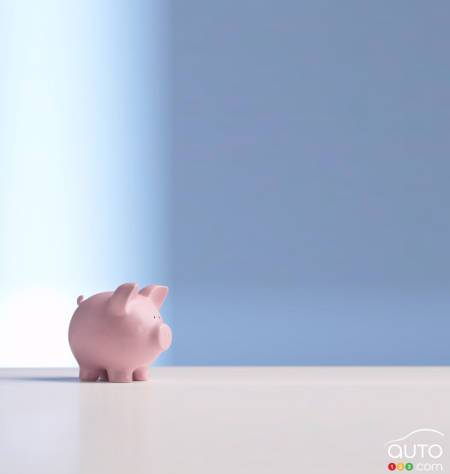*The following is based on my experience as a consumer, not as a journalist, which is why I chose not to identify my insurance company.
Last year, I installed a Big Brother-type device in my car that monitors my driving habits. Why? To pay a lower insurance premium, that's why! A number of auto insurance companies indeed offer this modern gadget that keeps track of a driver's mileage, time of travel, acceleration, and braking. It even knows when you're going over the speed limit!
Once the evaluation period is over, the insurer can lower your premium up to 25%. I don't know how that's possible, however, because I got a much smaller rebate than that despite being a safe, cautious driver who abides by the highway safety code and almost never brakes at the last second.
How does it work?
It's simple: The insurance company provides an electronic device to be plugged in your car's OBD (on-board diagnostics) connector, which is usually located to the left of the steering wheel on the lower dash. Once installed, Big Brother tracks your every move on the road and behind the wheel... including any attempt to disconnect the device should you feel the urge to cheat. All the data is recorded as follows:
- Speed limits: You may think you're playing it cool and safe by keeping with the flow of traffic at 110 km/hr only, but you're still driving above the speed limit.
- Time of travel: Do you drive a lot at night or during rush hour? This will cost you. Granted, some people have no choice but to hit the road at this time of the day, but insurance companies give a more substantial reward to drivers who use their car when there is a low collision risk, like on weekends.
- Mileage: Here's where I scored the most points. Insurance premiums are typically lower when you travel fewer than 15,000 kilometres a year. Adding 500 kilometres or so to your weekly commutes will cost you a significant chunk at the end of the year.
- Acceleration and braking: You and I don't have the same definition of “hard” acceleration and braking as most insurance companies. Mine told me that they see it as “any acceleration of 13 km/hr per second or faster and deceleration of 15 km/hr per second or faster.”
On my insurer's website, I even learned the exact date, time, and location of every instance of hard acceleration or braking. Discovering how much the company was able to track my actions behind the wheel suddenly sent big chills down my spine.
The verdict
Of course, there's a considerable payoff to having a tracker in your car, and that's the opportunity to save precious dollars when you're due to renew your auto insurance. While I did not get the maximum 25% rebate, my driving performance was good enough to earn me 10% off, which isn't too shabby. I also changed my driving style a little, so I probably saved a few more bucks on gas. That has to count for something.
Ultimately, if you'd like to save on car insurance and are a generally safe driver, having your own little Big Brother could be worth it. This tracking device can also help you improve your acceleration and braking manoeuvres. On the other hand, if you travel some 50,000 kilometres a year, go through two sets of tires every summer because you sprint like a mad man or regularly drive during “high-risk” hours, you'll likely receive a negligible discount -- if any.



